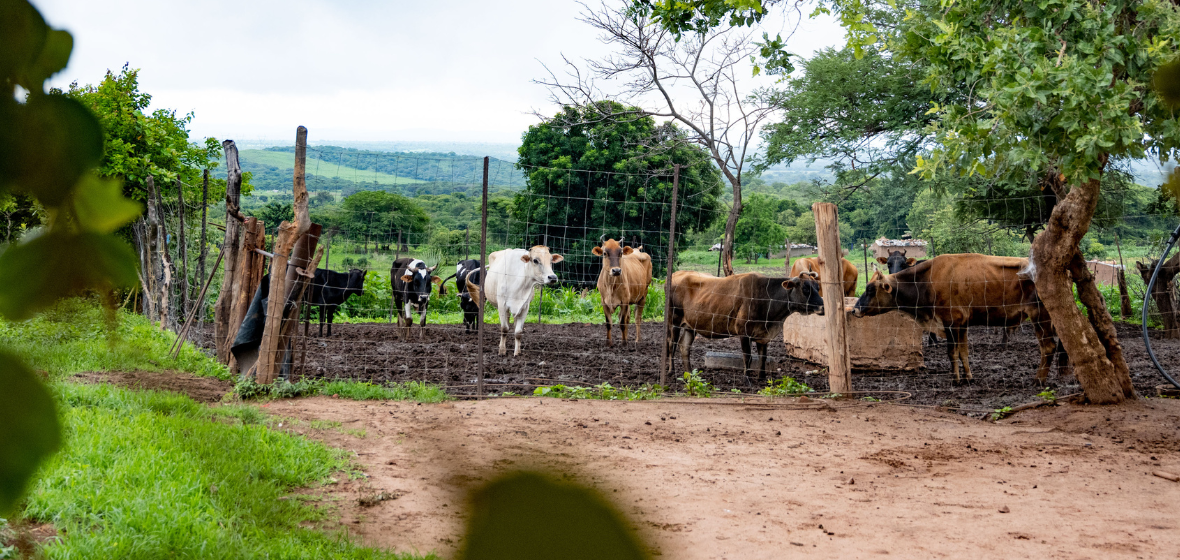
BLOGS, ARTICLES AND NEWS
Get updates directly from the CA4SH Global team and stakeholders
CA4SH at Bonn Climate Change Conference 2024
June 3 to 13, 2024 - The 60th session of the United Nations Framework Convention on Climate Change (UNFCCC) Subsidiaries Bodies (SB60) took place in Bonn, Germany. Also called the 2024 Bonn Climate Change Conference, it brought together an estimated 6,000 attendees to prepare and shape the agenda for COP29 in Baku, Azerbaijan later this year. This year, we contributed to several side events led by partners to elevate the importance of soil health.
CA4SH at UNEA-6: Multistakeholder action to foster an enabling science, policy and business environment to scale soil health globally
From 26 February to 1 March 2024, the sixth session of the United Nations Environment Assembly (UNEA-6) took place at the UN Environment Programme (UNEP) headquarters in Nairobi, Kenya, to discuss global environmental policy amongst the 193 Member States.
The discussions centred on how multilateralism can help tackle the triple planetary environmental crises of climate change, nature and biodiversity loss, pollution and waste. Luckily, we know well of a solution to these challenges and, indeed, all 17 of the UN Sustainable Development Goals: scaling soil health, globally.
Learn more about CA4SH engagements at UNEA-6.
Urging Enhanced Integration of Soil Health in NDCs at COP28
December 9th, COP28 UAE - In an event held at the Land & Drought Resilience Pavilion, the Coalition of Action 4 soil Health, the WWF, CIFOR-ICRAF and AICCRA convened a discourse on the imperative need to reinforce Nationally Determined Contributions (NDCs) by emphasizing soil health and nature-based solutions. The event, titled “Strengthening NDCs for Soil Health - learning from practical experience”, brought together a multitude of stakeholders including government representatives, scientists, farmers, and development practitioners to deliberate on critical action for soil health to shape the global climate agenda.
What is biochar? Why an ancient farming technique could help fight climate change
“A new study estimates that biochar could capture as much as 3 billion metric tons of CO2 each year. Here’s how the process works.”
Read the full story from fastcompany.com
By Adele Peters
Biochar offers an accelerated pathway to global decarbonization, says new research
“The first-of-its-kind data highlights biochar’s potential to scale carbon removals as a win-win solution for people and the planet.
Biochar can potentially remove up to 6% of global emissions annually – the approximate equivalent of 3 billion tonnes of CO2 or the total emissions of 803 coal-fired power plants in one year.
Biochar also has a minimum removal potential of 10% in over 25 countries, concentrated in Africa, South America, and Eastern Europe, and can potentially reduce carbon emissions by over 30% in Eswatini and more than 20% in Malawi, Argentina, and Ghana.
The greatest carbon dioxide removal (CDR) potential – rests with the world’s biggest emitters, including China, the United States, Brazil, and India, who can chart a pathway for sustainable emissions reductions through biochar.”
Read the full article from the International Biochar Initiative
Training the Future of the Biochar Industry
“This June, International Biochar Initiative (IBI) launched the inaugural Biochar Academy: an in-person and online learning project modeling a train-the-trainers education approach to develop a global biochar workforce.
The IBI Biochar Academy provides direct training for farmers, agriculture extension agents, policymakers, climate-smart agriculture organizational staff, climate project developers, and researchers interested in practical knowledge.”
Policy Roundtable: Integrating Soil Organic Carbon into the Nationally Determined Contributions
At a recent virtual roundtable discussion organised by Accelerating Impacts of CHIAR Climate Research for Africa (AICCRA), policy experts involved in the development of the Nationally Determined Contributions (NDCs) met to share key opportunities and barriers for integrating soil health into national climate change adaptation and mitigation plans.
Scaling soil health to tackle climate change
Originally published by AICCRA, learn more about how soil health can be incorporated into national policies.








